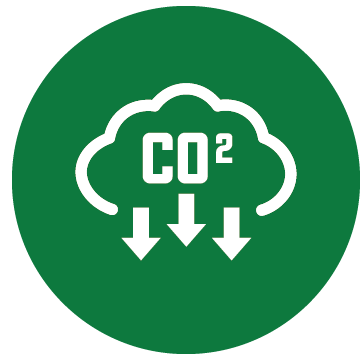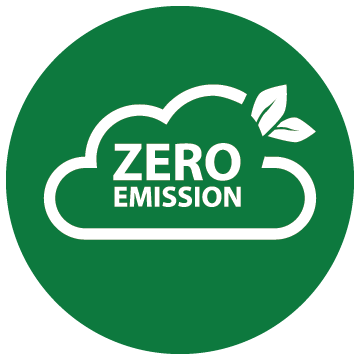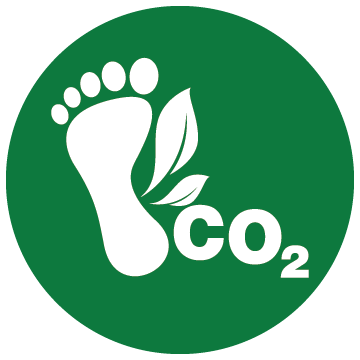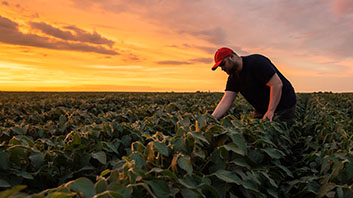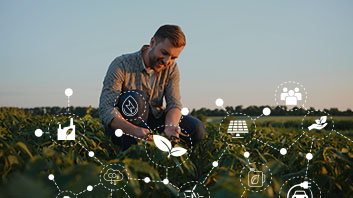Responsible Business
Transforming our business for a sustainable future
In addition to offering farmers profitable tools for more sustainable production, we purposefully reduce our environmental impact by working towards the reduction of greenhouse gasses, producing more environmentally responsible packaging, participating in recycling efforts and supporting critical conservation and biodiversity efforts.
Greenhouse gas reductions
BASF was closely involved in the development of the Greenhouse Gas Protocol standards for the chemical industry, and we continue to adhere to them.
Responsible packaging efforts
- Prioritizing products sourced with renewable energy, when commercially possible
- Product cartons are composed of 90% recycled fibers
- Unique Eco Packaging results in an 18% reduction in plastic versus industry standard
- Microplastic-free seed coatings coming soon to North America
Recycling efforts
BASF supports recycling chemicals and plastic produced by the agriculture industry through memberships in leading organizations, including the following:
- Ag Container Recycling Council has recycled more than 236 million pounds of agricultural chemical containers since 1992.
- Clean Farms Canada recycles an estimated 6,200 tonnes of ag plastic waste each year.
Supporting habitat-based solutions
- BASF contributes to multiple projects that foster water quality, habitat development as well as pollinator health and biodiversity. BASF’s projects include:
- We support the Lake Winnipeg Water Stewardship Program that helps improve water quality through various environmental interventions on Canadian farms within the watershed area.
- We support Pheasants Forever and Quail Forever help conserve wildlife through habitat improvements, education and advocacy. Through our support, we co-sponsor a precision ag conservation specialist in West Texas who helps farmers identify low-productivity acres for possible conservation and habitat development.
- We co-sponsor a research chair in pollinator health and biodiversity at the Western College of Veterinary Medicine at the University of Saskatchewan.
- We introduced the Living Acres #MonarchChallenge initiative in North America to help preserve the Monarch butterfly species. Monarch populations have dramatically declined in recent years due to various reasons, including overwintering habitat loss and milkweed availability. Since 2015, we have provided more than 35,000 milkweed stems to farmers, golf courses and other agriculture advocates in the United States and Canada, inspiring farmers to plant milkweed patches that preserve the species, all while protecting crop productivity.
Our pillars of sustainability
1 BASF Report 2023
©2024 BASF Corporation. All Rights Reserved.


